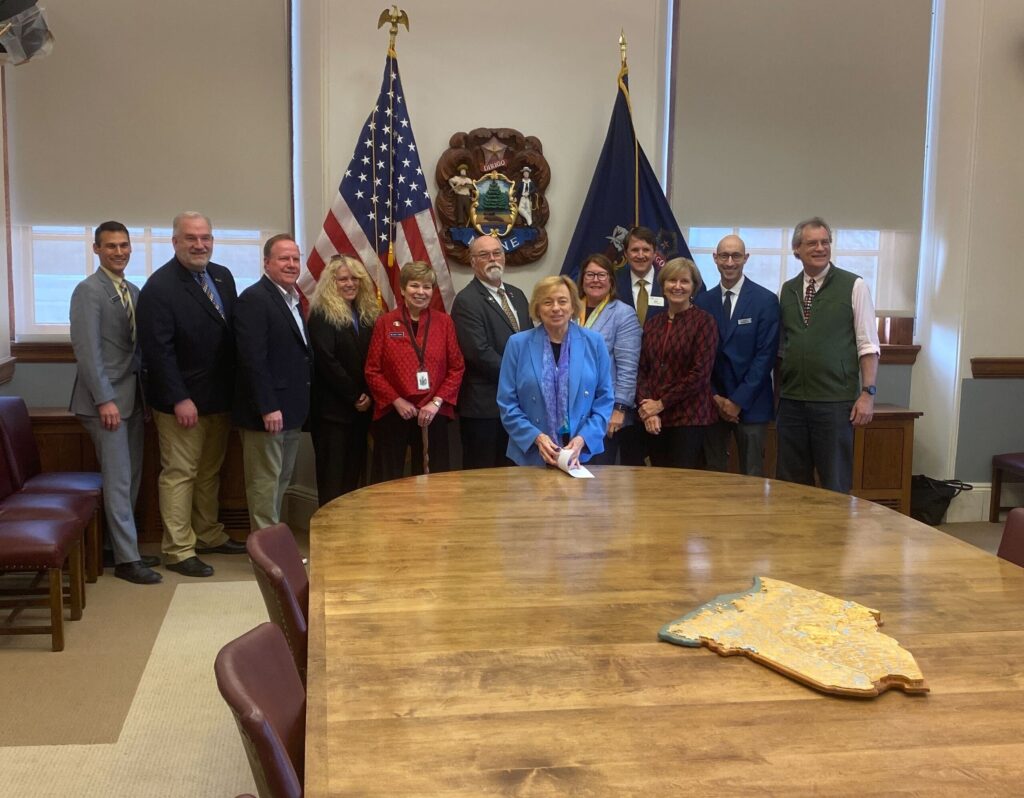LEADERS DENOUNCE INACTION BY SENATE PRESIDENT TO BIGOTED HATE-SPEECH
“Silence is the same as agreement”
AUGUSTA – Senate Democratic Leader Justin Alfond and Assistant Senate Democratic Leader Dawn Hill released the following statements following a press conference held by the Maine Chapter of the NAACP.
Earlier today, Rachel Talbot Ross, Rabbi Rachel Isaacs, former Penobscot Indian Nation Representative Donna Loring, members of the NAACP, and other Democratic Senators, held a press conference calling for collective action in denouncing racist and bigoted remarks made by Aroostook County State Senator Michael Willette of Presque Isle.
“This is a pivotal moment for not just the Maine Senate or the Maine Legislature but for the state as a whole. We want Maine to be a welcoming place to people of all colors and religions. But that can only happen if we learn from this moment. We can’t learn from this if we ignore it or hope it goes away,” said Senate Democratic Leader Justin Alfond of Portland. “We continue to call for the entire Senate body to come together and denounce hate speech, racism, and bigotry. I call on all of us to work on a better way to move forward for our institution and for Maine–to do so will only make us stronger.”
More than a week ago, Mike Tipping revealed in a Bangor Daily News blog post, Maine GOP Senator suggests Pres. Obama will see ISIS at family reunion, a Facebook post by Sen. Willette slurring President Obama. Tipping later revealed that Sen. Willette has a long and prolific history of posting xenophobic and bigoted Facebook comments [Maine Sen. Michael Willette has a long history of online hate and bigotry].
Since then, on March 10, Senate Democratic leadership sent a letter to Senate President Mike Thibodeau, saying, “We ask that as a legislative body, we unite and not look the other way or tolerate words of hate and racism. To do so, is to done it, to agree with it, and to be complicit in the violence for which it perpetuates.”
The next day, Sen. Willette apologized on the Senate floor saying, he failed “to show restraint.”
“Problems only grow when they are ignored. If this had been handled properly from the beginning, then we’d be having a different conversation,” said Assistant Senate Democratic Leader Dawn Hill of York. “If folks don’t believe racism and bigotry are okay, then why hold back? There’s no downside to standing up and being counted on to do what’s right.”
During her opening remarks, Talbot-Ross said, “Today is not easy. It’s not easy to be standing up here. Looking the other way, is easy. Staying silent, is easy. But confronting and talking about the insidious nature of racism, bigotry, and xenophobia—the fear of the other—is a responsibility we all share—as Americans, and, as Mainers…
We believe in the First Amendment of the US Constitution and, as such, Sen. Willette’s right to freedom of expression. Freedom of speech is not, however, freedom from responsibility.
Sweeping bigotry under the rug does not make it go away. It drives it underground. It grows. It becomes insidious. We begin to accept its presence. Today, we are here to say, we will not allow for that to happen. Because, we are not going away.”
Rabbi Rachel Isaacs from Temple Beth Israel Congregation in Waterville said, “Silence is the same as agreement…We will not accept racist or Islamaphobic comments in any form: whether they be veiled or explicit, coded or undeniably clear.
We will not stand silent. We will not let intolerance slide. We will not make excuses for the systemic racism we often prefer not to address.
We stand here today to express our deep disappointment in those who represent the people of Maine — who use their position in order to propagate intolerance, disrespect, and misunderstanding.”
Donna Loring of the Penobscot Nation said, “When a Maine State Senator makes comments like the ones he has, it has to be met with consequences or it is no longer simply his view–it becomes condoned and words cannot mitigate that.
When an institution does nothing but politicize the issue with no real action, it continues to say, ‘we agree, let’s move on to business as usual.’ The issue is never the words but how, as leaders, we respond through action that sends a clear message that people of color are important just as important as the next person…”
###



